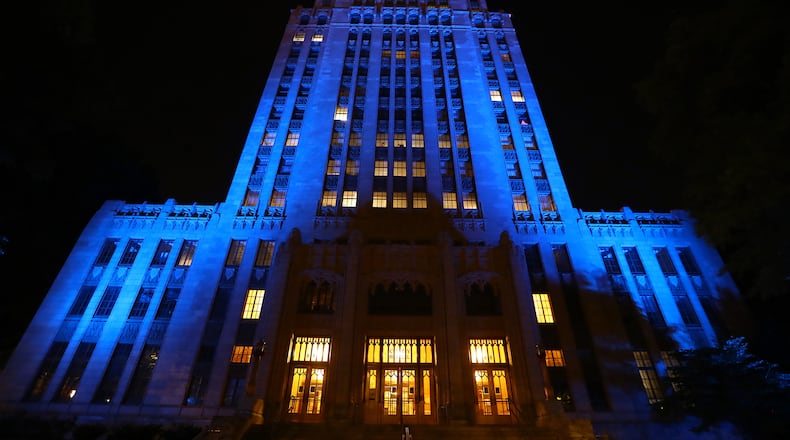Atlanta city officials' use of taxpayer-backed credit cards on business and travel in fiscal year 2020 still matched the amount that was budgeted for those expenses, despite the city being under a stay-at-home order for months because of the coronavirus pandemic.
Of the roughly $170,000 spent on city-issued cards in the fiscal year ending June 30, about $100,000 covered business and travel costs, according to a presentation from the city’s controller on Wednesday.
The figures caught councilman J.P. Matzigkeit off guard.
Matzigkeit helped pass legislation reforming credit card use after The Atlanta Journal-Constitution and Channel 2 Action News documented improper spending with the cards by members of Mayor Kasim Reed’s administration.
In 2019, the Atlanta City Council passed an ordinance that banned a number of credit card purchases: dry cleaning, alcohol and tobacco, plane tickets for family members, cash advances, gift cards, calling cards, memberships at wholesale warehouses, in-room hotel movies and mechanical repairs for personal vehicles.
All were examples of hundreds of thousands of dollars in inappropriate spending under Reed — some of which occurred by Reed — and was exposed in AJC and Channel 2 reporting.
The purchases also became the subject of federal grand jury subpoenas investigating corruption at City Hall and, last month, part of the indictment against former Chief Financial Officer Jim Beard on fraud and weapons charges.
The new credit card ordinance requires the finance department to provide the council with quarterly updates on card purchases.
City Controller Youlanda Carr on Wednesday told the council’s Finance Executive Committee that 17 people in six city departments — finance, corrections, law, aviation, police and the executive offices — possess credit cards.
In each department, the highest expense was business travel.
The eight members of Keisha Lance Bottoms' Executive Protection team, who provide security for the mayor and her family, spent the most — nearly $65,000 on business travel, according to the presentation.
Matzigkeit said he thought that the amount of credit card expenses for business and travel costs were odd.
“I would have assumed that business travel expenses was cut down significantly due to COVID-19,” Matzigkeit said.
Carr said that the spending was on par with the budget, which also surprised Matzigkeit.
“A quarter of the year we were locked down,” he said.
Carr said the city saw little travel expenses in March through June.
About the Author

